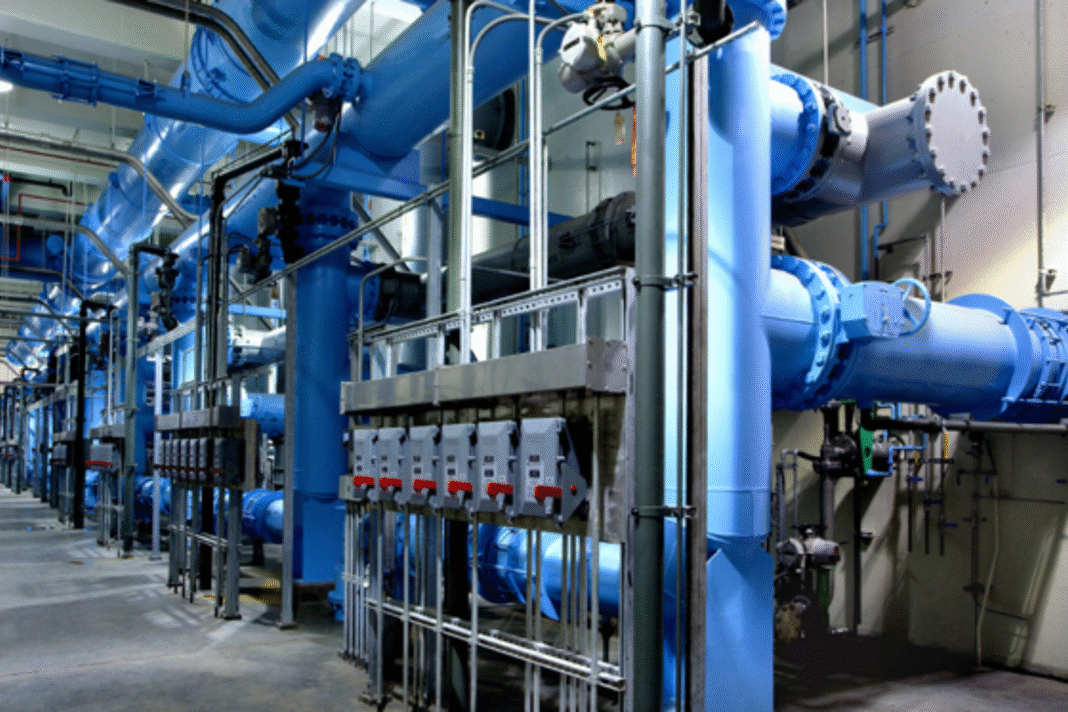Water is one of those things we often take for granted—turn the tap, fill the glass, and get on with the day. Yet behind that simple act lies a huge world of infrastructure, filtration, and science, all working silently to make sure what you drink and cook with is safe. In the UK, we tend to assume our water is “sorted,” but when you start looking a bit deeper, the story becomes more complicated. From limescale-stained kettles to health concerns about long-term exposure to impurities, water treatment is far from a luxury—it’s edging into the category of essential.
Why Water Quality Still Raises Eyebrows in Developed Regions
We live in a time when bottled water sales are booming, even in countries where tap water is technically safe. Strange, isn’t it? Some of that comes down to taste and convenience, but there’s a real undercurrent of mistrust. Households are increasingly aware of hard water, chlorine levels, and even microplastics.
For families who’ve invested in filtration or softening solutions, the difference is instantly noticeable. Dishes sparkle longer, kettles don’t build up that chalky residue, and tea genuinely tastes smoother. It’s subtle, but once you’ve adjusted, it’s hard to go back. That’s where companies specialising in a water treatment service area become crucial—because not all regions face the same water challenges, and the fix isn’t always one-size-fits-all.
The Hidden Costs of “Just Putting Up with It”
Here’s the bit that most people ignore: untreated or poorly treated water has real financial and lifestyle costs. Hard water, for example, shortens the lifespan of washing machines, dishwashers, and boilers. The energy bills creep higher too, since limescale buildup makes appliances less efficient. Add in extra cleaning products to keep showers free of scum, plus bottled water for those who dislike the taste of tap, and suddenly the hidden price of “decent enough water” doesn’t feel very decent at all.
Investing in tailored treatment solutions isn’t just about health or taste—it’s also an economic decision. Over time, properly treated water pays for itself, often in ways you don’t expect until you tally the costs.
Central Florida as a Cautionary Tale
Now, this might sound odd for a UK audience, but looking abroad can highlight lessons we’re only just beginning to take seriously. Take the situation with water treatment Central Florida, for example. That region faces notoriously hard water, with high mineral content that clogs pipes and damages appliances. Residents there often see a water softener not as a luxury, but as a basic household requirement.
The UK might not be as extreme, but the parallels are clear. Think of areas like Essex, Kent, or Hertfordshire—regions where hard water is the norm. Borrowing practices from regions that have learned to adapt could give us a head start in managing our own local water headaches.
Regional Challenges Demand Regional Solutions
One of the most fascinating aspects of water treatment is just how varied the problems can be. You could live 30 miles down the road from a friend, and yet your water behaves completely differently. That’s why regional expertise is everything.
For example, companies in the Tampa water service area don’t just deal with hardness; they battle unique issues related to ageing infrastructure, coastal influences, and local contaminants. The lesson here is that every water supply has its own fingerprint. You wouldn’t expect the same pair of glasses to suit everyone’s eyesight, so why assume a one-size-fits-all filter can solve every water problem?
The Health Conversation That Won’t Go Away
Let’s not sidestep the elephant in the room—health. While UK tap water generally meets regulatory standards, “meets standards” isn’t the same as “best possible.” Trace chemicals, chlorine, and other residuals may not be deemed dangerous at low levels, but over decades, who knows? Parents often become particularly cautious when young children are involved, preferring to err on the side of caution rather than gamble on official thresholds.
That’s why the water treatment industry isn’t just thriving on aesthetics (clearer glasses, shinier taps), but also on peace of mind. The idea that you’re protecting your household, even in ways you can’t see, resonates deeply.
Sustainability: A Side Benefit Worth Talking About
There’s also the environmental angle. If households can trust the quality of their tap water, reliance on bottled alternatives naturally declines. Less plastic, less transport, less waste. It’s a quiet but powerful benefit that often goes unspoken. A properly treated water system essentially turns your kitchen tap into a permanent, eco-friendly bottled water machine.
It’s not the flashy selling point, but in a time when sustainability is climbing the agenda for both households and governments, it’s a factor that will only grow in relevance.
So, What Does This Mean for the UK?
For British households, the conversation about water treatment is just beginning to pick up steam. We’re used to grumbling about hard water, but not always connecting the dots to long-term solutions. The truth is, the technology is there, and the investment often makes more sense than we realise.
We can learn from other regions’ approaches—places like Florida and Tampa, where water treatment is woven into daily life. And at the same time, we can carve out local solutions tailored to our unique challenges. It’s not about paranoia; it’s about smart living. Better tasting tea, longer-lasting appliances, healthier households—small wins that stack up into a major lifestyle improvement.
Wrapping It All Together
Clean water is something we can’t live without, but that doesn’t mean all water is created equal. Every region faces its own quirks, from chalky build-up to subtle chemical traces, and ignoring those quirks usually comes at a cost—whether it’s financial, environmental, or health-related.
Water treatment isn’t some futuristic luxury. It’s a present-day opportunity to take control of something that affects our homes every single day. Whether you’re in Kent battling stubborn limescale or looking overseas for inspiration, the case for action is clear.
Because when your water runs clean, your life feels lighter—and sometimes, that’s exactly what we need.
